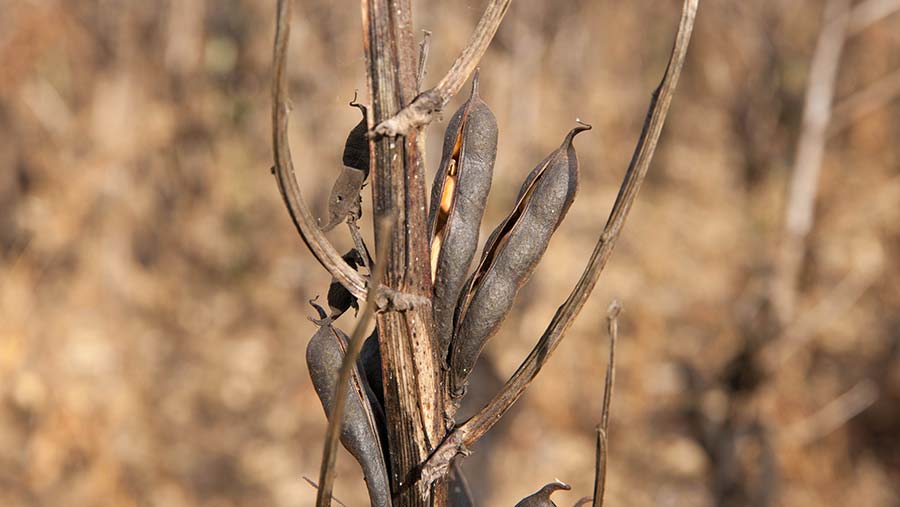Defra earmarks £12.5m to develop home-grown protein
 © Tim Scrivener
© Tim Scrivener Defra has allocated a £12.5m funding pot to improve the efficiency of farm-based protein production in the UK, and so reduce dependence on imports.
Funding will be drawn from the £270m Farming Innovation Programme and earmarked for farm-led research and development into sustainable protein production.
The money will be available to farmers, growers, businesses and academics to collaborate on projects that improve protein crops such as beans and peas.
Ultimately the government wants to improve the resilience of England’s farms by reducing the reliance on imported protein sources, which have seen costs soar.
See also: Nature-based farming can cut fertiliser use, finds trial
Imports of products such as soya also come with a hefty carbon footprint. Estimates suggest 60-80% of a poultry unit’s carbon output can be attributed to imported feed.
The aim is also to encourage growing of nitrogen-fixing plants within rotations to boost soil health while reducing costly inputs of artificial fertilisers.
The funding was announced by Defra secretary George Eustice at the Devon County Show on 30 June and will be made available in July.
Mr Eustice also used the event to unveil further funding for research projects that would reduce the environmental impact of farming.
Methane-reducing feeds and supplements, and the breeding of sustainable and resilient crops and livestock could attract funding in the future, Defra said.
Methane capture
Mr Eustice was also set to highlight innovative technology that captures methane from slurry stores and turns it into biomethane.
West Country farm technology business Bennamann demonstrated its kit that can cover any size of store or lagoon, and harvesting biomethane for domestic and commercial fuel.
Bennamann is working with Cornwall Council and six of its farms, where anaerobic digestion of manure stored in the slurry lagoon produces biomethane which is processed into compressed gas or liquid fuel.
The fuel can power lorries and tractors as well as heat households and businesses. Cornwall Council plans to run its road maintenance vehicle fleet on this greener source of fuel, while Bennamann has worked with New Holland to develop a methane-powered tractor.
Mr Eustice said: “For a 150-head dairy farm, the system creates biomethane worth approximately £30,000 in additional income for the dairy farm, and it removes about half of the methane generated by the herd, making a significant reduction in greenhouse gas emissions.
“Improving farm profitability and tackling environmental challenges requires us to allow the natural cycle of life to operate fully.
“Rather than seeing farm waste like slurry as a problem and a cost, we need to start recognising that they are actually a resource that could be monetised to boost incomes.”
